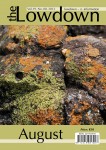It’s Ramadan. I’m in Jambiani, a village on the East Coast of Zanzibar trying to feed three families of friends. I don’t speak Swahili; my bad. I am aware that as in most tropical island cultures there is probably an equivalent expression to the laissez faire and well loved manãna of the Hispanic countries … but it won’t carry the same pressing sense of urgency. I suppose this environment is a poor breeding ground for work ethic. The climate is ameliorating all year round with no need for any more wardrobe than a pair of swimming shorts, a tee shirt and a kikoy which can function rather like Ford Prefect’s towel as a manly kilt, a hat, bed sheet or scarf if temperatures plummet below 25º centigrade. There is fresh water in shallow wells and hidden indigo subterranean coral caverns a kilometre inland. Every other tree is laden with coconuts, and mango, passion fruit and paw-paw grow accommodatingly from each cow pat dropped by the skinny, but milk and meat bearing, island cattle. Goats flourish, recycling the mountains of disposable diapers behind every village into fine protein. And then there is the sea; which despite the best efforts of commercial fishermen still offers up a smorgasbord of faire. From tassi the staple shallow water fish, through grouper, snapper and parrotfish to the sleeker and meatier pelagic kingfish, Spanish, king and queen mackerel to tuna and sailfish, all found in reach of the small outrigger dhows used by the local fishermen. Lobster, octopus, mangrove crab and squid are there for the taking if you have the know how, and they do, these Swahili sailors who are as at home on the beaches of the Indian Ocean now as they have been for a thousand years
Yesterday an embittered crone looked up from casually scraping spoonfuls of delicate (albeit fiddly to prepare) baby clams from the sand, where they are as common as daisies in a summer meadow, and squawked “See!? See what we are forced to eat because you wazungu have taken all the fish!” Later the same day tucking into a bowl of pasta vongole at the local bistro for $12 a portion I found it hard to be sympathetic.
But now, as I mentioned, it is Ramadan and our neighbours in the village are fasting. A group of young men pass by each morning at 3 am and wake everyone up with drums and shouting so that they can partake of suhoor, the last chance to eat before the day’s fast begins. Until the evening meal called iftar, they will take no solids or liquids and the devout will even refrain from swallowing their own saliva (or anyone else’s for that matter). The purpose of this month-long, self-imposed restraint is to focus the mind and body on matters of the spirit, and during the same period much emphasis is placed on acts of charity. Something that Kessi my askari has obviously forgotten.
“Is it possible?” I ask him “That you can find someone making chapatti and doughnuts in the village either in the evening or early in the morning and buy us some each day.” He shakes his head as if I have asked him to locate and retrieve the Ark of the Covenant and says. “Is very difficult in Ramadan time.” “But you eat these foods every day in Ramadan too?” I probe. “Yes every day” he confirms. “So can you buy them for me?” I ask again. “Maybe my wife can make?” he suggests and I agree happily. Sure enough at 7 am the next morning he has brought six delicious, flaky, warm chapatti, glossy with oil and crying out for some peanut butter and chilli, accompanied by a dozen plump, oven-fresh and cinnamon sugared doughnuts. Now we’re talking; this will keep my coronary health regime on track. When it comes to payment Kessi suggests that $7.50 would be a fair price for my carbo-fix which has a street value of $2.50. “Why?” I query and he replies quite unabashed “Because you are a white”. An interesting pricing structure but I fear it would be unpopular in my own restaurant.
Jaribu, one of our friends in the village has gone with Gillie to Abdulla’s plant nursery. Abdulla is a lovely bloke, crippled by a childhood fall from a coconut palm and an excellent botanist, scientific names garnishing his every sentence. Jaribu, despite his fast, works solidly for two days to dig holes, fill them with topsoil and plant out the garden beds in the barren, sugary sand. He is indefatigable and as he toils away cheerfully Kessi leans scowling against the wall. “Who is the other guy doing nothing?” asks my friend from Nairobi. “He’s the watchman” I tell him. “What does he do?” asks Anthony. “Watch.” I say, knowing that Kessi is punishing me for not agreeing to his racist chapatti valuation.
I suppose Kessi feels justified in bearing historical enmity, imagining that my people (the Portuguese and English) had behaved rudely enough in Zanzibar for the past half a century to warrant being overcharged for pastries and that although also a foreign import, his Islamic customs have a further half a century of precedence over my European demands for fair play and egalitarian pricing. The Portuguese held Zanzibar for almost two centuries soon after Vasco da Gama’s visit in 1499, using the port as a staging post to export primarily ivory and gold from the interior. The Omani Arabs ruled Zanzibar as a Sultanate (1698-1890) plundering their mainland territory known as Zanj (which extended as far as the Congo) for the same, and for slaves in addition, although historically they had concentrated their slave trade further north in the Horn of Africa.
But it’s glossed over that there should really be closer fellowship between the Swahili and European, given that the former had actively pioneered the same sorry trade in human life for hundreds of years before the Portuguese and British arrived. The Swahili controlled slavery from as far south as Madagascar and the Comores Islands all the way to Paje in the Lamu Archipelago, just shy of the current Somali border, sending thousands of captives every year north and on to Arabia long before the dreaded colonials arrived. But arrive they did and eclipsed all the savagery and ungentlemanly behaviour that had gone before. The British and Germans made their dodgy deals, dividing the Arab’s Zanj Empire, amongst themselves and declared Zanzibar a British Protectorate around 1890. In 1896 the British Empire and Zanzibar, under Sultan Khalid bin Barghash, waged a short and bitter war. The shortest in history in fact; clocking in at 38 minutes from declaration to victory, tea and medals. At 0900 hours on the 27th August having failed to vacate the Sultan’s palace in favour of the British Empire’s chosen puppet Sultan, bin Barghash was fired upon by the British Navy and ground forces and after 500 casualties were inflicted on his side and much of the Palace and the Sultan’s Royal Yacht destroyed by British artillery, his flag was shot down and hostilities ceased before 0940 hours, with no injury time being played.
British rule continued until Zanzibar’s independence in 1963 which was followed only a month later by the Zanzibar Revolution (led by a Ugandan) which resulted in some 10,000 Zanzibaris of Arab and Indian decent being murdered and, or driven into the sea and many thousands more detained, deported and stripped of their assets. A few months later, once the blood had all been hosed away and the sharks had disposed of the rest, the United Republic of Zanzibar and Pemba joined with Tanganyika to form the United Republic of Tanganyika and Zanzibar, which became after only a few more months, The United Republic of Tanzania … phew!
So all in all, I feel that everyone without exception has behaved pretty poorly over the last millennium and nobody has any right to point fingers at anyone else as far as Zanzibar is concerned. And there is certainly no call to be artificially raising the price of a chapatti based on the colour of a person’s skin.
I rest my case.


Leave a Reply
You must be logged in to post a comment.